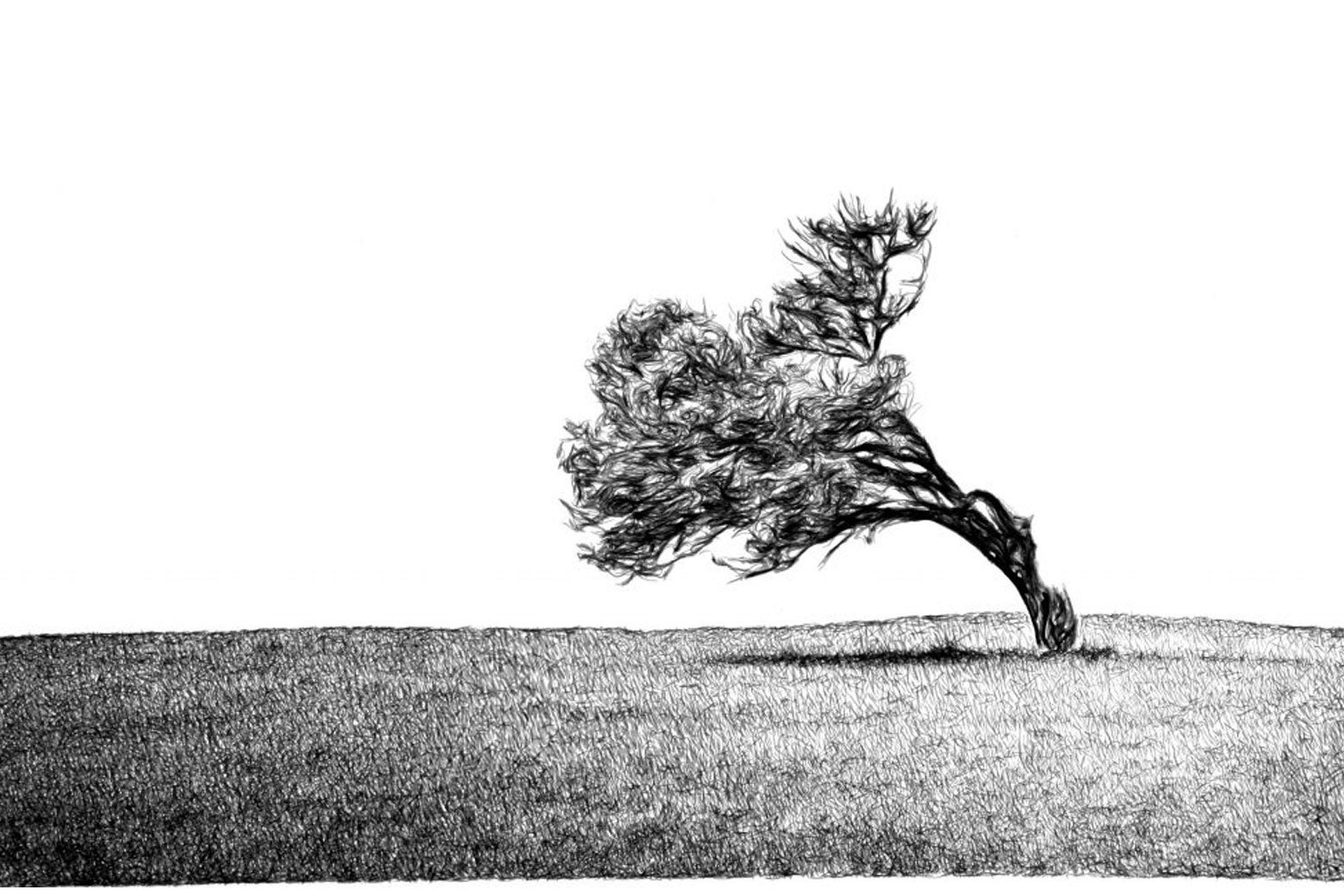What do Suda the elephant and e-David the robot have in common? Both are capable of creating beautiful paintings, free(ish) of human intervention—one uses its trunk to clutch the brush, the other a mechanical arm (though whether Suda is truly “free” when she paints is a matter of serious contention). Each can even sign their work. The quality of their paintings does vary slightly, though of course, beauty is in the visual sensor of the beholder. Suda, who lives in a Thai elephant camp, paints self-portraits, simple outlines of elephants and trees, while e-David, a German robot, paints portraits of others with detailed shading, strokes tailored even down to the choice of brush. Despite their artistic differences, e-David and Suda have another thing in common: dubious rights to legal authorship of the fruits of their labor. Neither is able to hold copyright under current U.S. law.
For Suda, this seems unlikely to change. A long-running legal dispute over the creative ownership of a monkey’s selfie saw a loss for animal-kind last week, with the 9th U.S. Circuit Court of Appeals dismissing a copyright infringement lawsuit by the People for the Ethical Treatment of Animals on behalf of the animal. The selfie, which Naruto the crested macaque snapped in 2011 with a camera belonging to wildlife photographer David Slater, has been the subject of multiple lawsuits, with PETA recently attempting to claim Naruto is its true author—and therefore entitled to profits. It might be over for “Naruto’s” claim, however. The lawsuit had already been settled in Slater’s favor in a lower court, and it was reconfirmed, with the court ruling that copyright can only be claimed on behalf of humans.
In the time that the monkey selfie case has been ongoing (it even has its own Wikipedia page) the U.S. Copyright Office has re-emphasized the requirement of “human authorship” in intellectual property claims, updating its guidelines to explicitly rule out monkey selfies and elephant murals. According to the Next Web, some experts were looking to this latest court ruling as an important precedent in the non-human rights arena, with PETA lawyers claiming that “any law passed (or not) in Naruto’s favor could reflect the rights of other non-human entities.” Other non-human entities includes robots—because for now, bots don’t have intellectual property rights, either.
But when it comes to A.I., the craftsmanship and creativity of the “non-human entity” is quickly surpassing that of animals (sorry, Suda)—potentially even reaching levels at which copyright consideration may be necessary. As John Frank Weaver once noted in Future Tense, robots are excelling in the creative fields, painting, writing, and composing original work, and they’ve only matured since then, writing novels and even poems. All this raises significant questions for copyright law. Do we want to protect the “intellectual property” of artificial intelligence?
Some have suggested that yes, we do. As Paresh Kathrani points out in the Conversation, intellectual property law is designed to recognize intelligence and incentivize progress—if we don’t give robots IP rights, some argue, we are failing to protect the value we give intelligence, In failing to recognize and appropriately reward complex work, even that done by robots, we dis-incentivize it, potentially slowing down human (?) progress to boot. Many experts, including Weaver, advocate for other forms of robot rights—from the right to free speech to the right to citizenship—especially as they gain sentience.
It’s not clear yet what rights we may eventually ascribe to robots. But it is clear that robots are in with a better shot at these rights than animals. No one outside of PETA is particularly up in arms about the anti-Naruto ruling—in fact, PETA has been portrayed as something of a joke in the coverage and by the courts. Robot rights, meanwhile, are being taken very seriously. While U.S. copyright can currently only be held by “legal persons,” this may not rule out robots for long. The EU is considering creating a specific category of personhood just for bots, meaning they may be eligible even without a change in IP law (though these overlapping jurisdictions are going to be messier than Suda’s handwriting). Others have suggested that if not robots, copyright benefits could instead flow to their owners or creators—copyright by human proxy.
What does it say about us as a species that we are more comfortable conferring privileges to machines than to non-human–but-still-living beings? We apparently ascribe more value to chips and circuits than to flesh and blood, and we seem we more willing to listen to vested interests than to animal interests. Is it fear of Roko’s Basilisk that keeps us deferring to bots? Perhaps, as Nathan Heller suggests in this New Yorker essay, we feel—irrationally—as uncomfortable with robot cruelty as we do with animal cruelty because robot minds are made in our own image. This makes us better at anthropomorphizing bots than monkeys, despite our shared DNA with the latter. Or perhaps, in this case, it’s economics. Robots are themselves intellectual property. Time, thought, and human intelligence went into A.I., into making it capable of making valuable work—humans still want to reap the benefits of their creation’s creations. An A.I. developer wants in on the profits of a critically acclaimed, robot-penned novel—or maybe he just wants to write the sequel.
If we grant property rights to robots, humans (or at least some humans) win. The rights of the robot are ultimately the rights of the creator. But apparently if we grant rights to animals, humans—like David Slater—lose. And if there’s one thing humans like to do, it’s win.
